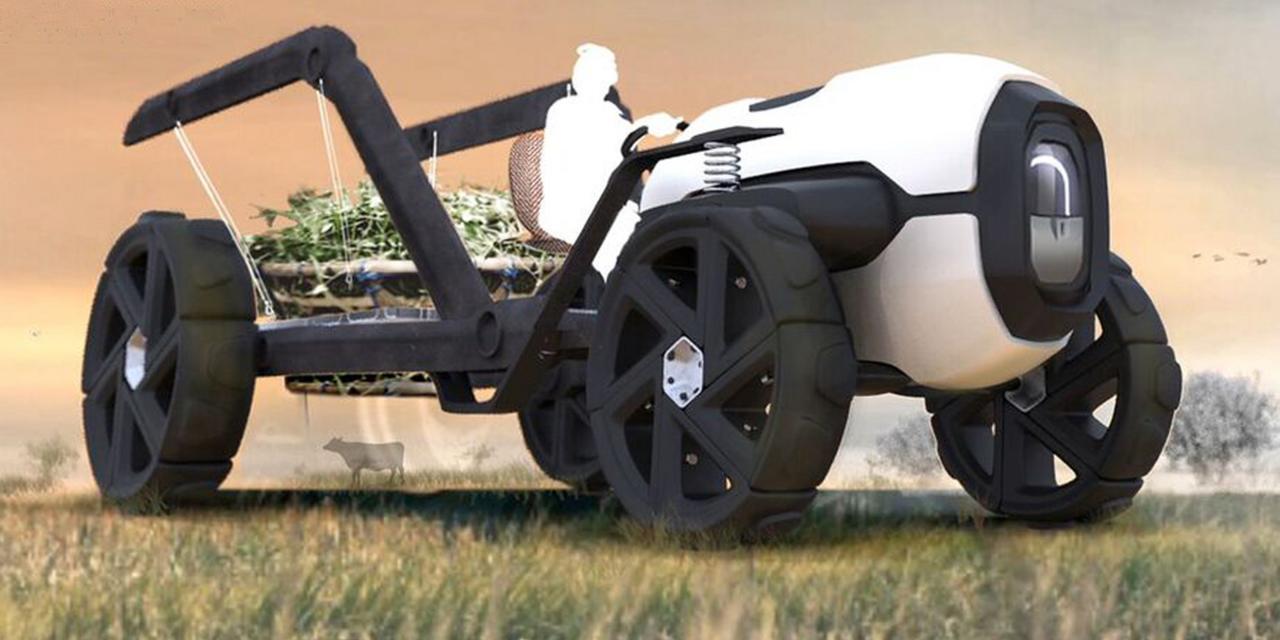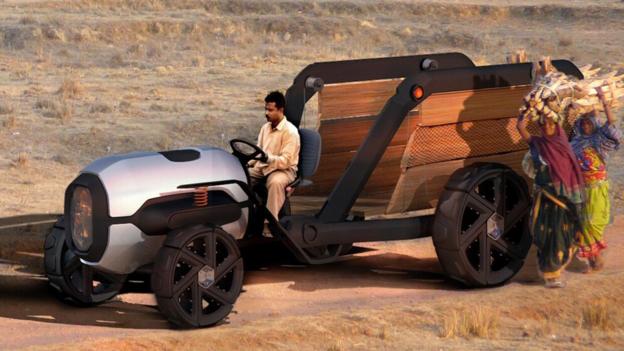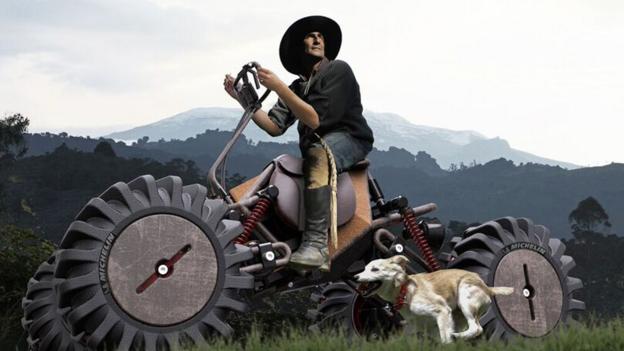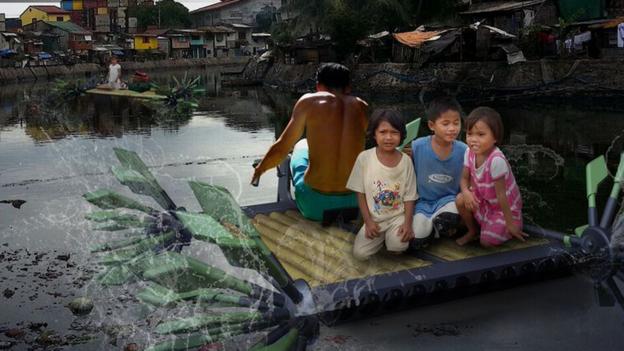
A giant bike that can travel on mule tracks, a tractor that can be turned into a market stall or ambulance, and a powered bamboo raft – are these ideas the future of transport in developing countries?
They don’t come from prestigious design schools – in fact some of them don’t even have formal training. Some are still students. But their ideas are so novel and revolutionary that the big vehicle manufacturers can’t help but take note.
They are the winners of the Michelin Challenge Design, recently displayed at the world-famous Detroit Auto Show. AsBBC Future has reported before, the concepts these ‘outsiders’ are coming up with go way beyond anything that traditional car companies are showing us, and may point to a very different future. And this year the winners include an aquatic vehicle that can be quickly assembled from bamboo in floods, an Internet-connected farm vehicle that can be called upon in disasters, and a solar-powered horse replacement.
The theme for this year’s Michelin Challenge Design was “Mobility for all – designing for the next frontier”.
“There are just a few places in the world that automotive designers come from,” says organiser Ben Ebel – referring to those few established design schools.
“It’s a pretty small pool that car and mobility companies draw from and we believe that there are talented individuals that may not necessarily attend these schools, or be from the US, the UK and Europe.”
Michelin says its competition is open to everyone, regardless of location. The 14 wining designs were chosen from more than 875 entries, representing 68 countries.
What can we glean about a possible future for global transportation from the three top-placed entries?
First place went to a ‘community vehicle’ designed by Rajshekhar Dass, a final-year student of transportation design at DSK ISD, India. Dass and his team wanted to make a vehicle for underdeveloped rural India, and to make modern technology more easily available. At first the vehicle looks like a traditional tractor. But look more closely, and you will see that it has detachable headlights, which can turn into street or home lighting.
Whenever we’re looking at entries, we try not to have imaginary technologies – Ben Ebel, Michelin
The rear deck is multi-purpose – it can be used to transport crops, and then as a market stall from which to sell them. It can also be converted to carry passengers, so that a farmer can earn extra money as a taxi driver.
However it is during an emergency that the vehicle gets interesting. Because the vehicle will be connected to something like Google’s Project Loon, which uses balloons to provide internet access in remote areas, in cases of dire need it can be used as a basic ambulance.
“Whenever we’re looking at entries, we try not to have imaginary technologies,” says Ebel. This entry is not affiliated with Google, but the judges liked the fact that it was based around an existing initiative, and takes the idea forward. It also emphasises the idea that the concept of mobility in the future is going to involve information, as much as physical transport.
Agriculture is also the focus of the second-placed vehicle – this time in rural Argentina. There, micro production or family agriculture is king. Coffee, for example, is grown in smallholdings, and then transported by horse or mule over rough tracks to a central processing station. The Arrierio vehicle looks like a monster quad bike. It is intentionally left ‘naked’ with mechanical parts exposed. That allows it to be easily customised and maintained. This electric vehicle, by Edgar Andres Sarmiento Garcia of Bogota, Colombia is designed as a sustainable replacement for mules, capable of travelling on the same kind of rough terrain mules would use.
“This is a substitution of one device for another one,” says Ebel. “It calls into question ‘is it better, or is it just different’? This thing can be constructed and adapted to exactly what this person is going to do with it, and that shows a depth of thinking that, as a designer, I appreciate.”
You can’t just make a few more million of what you are making now – Ben Ebel
The vehicle that nabbed third place is arguably the most innovative. “Number three is a little more out there!” laughs Ebel.
It’s called a Bamboo Recumbent, and is designed by WooSung Lee and Chan Yeop Jeong, of South Korea. Here is a concept to bring mobility to people who live in areas like Navotas, in the central Phillipines.
There, some 25 million people live in slum conditions. These are not people who are likely to buy a car, but when the area floods, they need transport. Their villages can quickly be covered in polluted water washing down from nearby waste dumps. The bamboo recumbent can be assembled from a kit of parts and some bamboo, to make a raft. As a side benefit, as parts rotate, it can even clean the water as it moves through it.
Although all of these ideas are just concepts, and you are not going to be able to buy them (well, at least not in the near future), the questions they raise may influence the design of the vehicles of the future.
“Scaling our existing auto industry is not sustainable long term,” says Ebel. “You can’t just make a few more million of what you are making now. I think for an organisation that is focused on mobility, a diversity of thinking is very important.”
Join 500,000+ Future fans by liking us on Facebook, or follow us on Twitter, Google+, LinkedIn and Instagram.
If you liked this story, sign up for the weekly bbc.com features newsletter, called “If You Only Read 6 Things This Week”. A handpicked selection of stories from BBC Future, Earth, Culture, Capital, Travel and Autos, delivered to your inbox every Friday.




ไม่มีความคิดเห็น:
แสดงความคิดเห็น